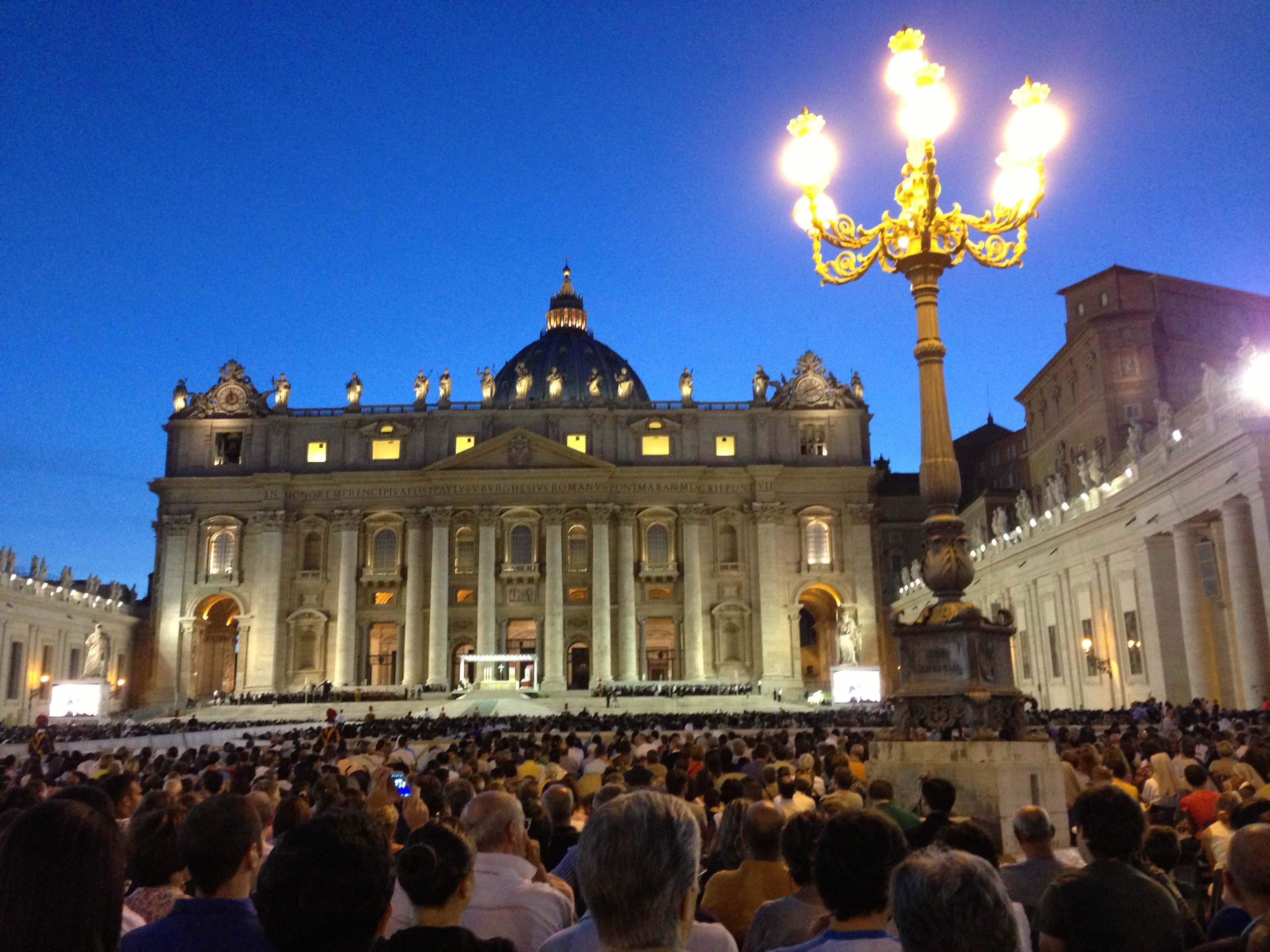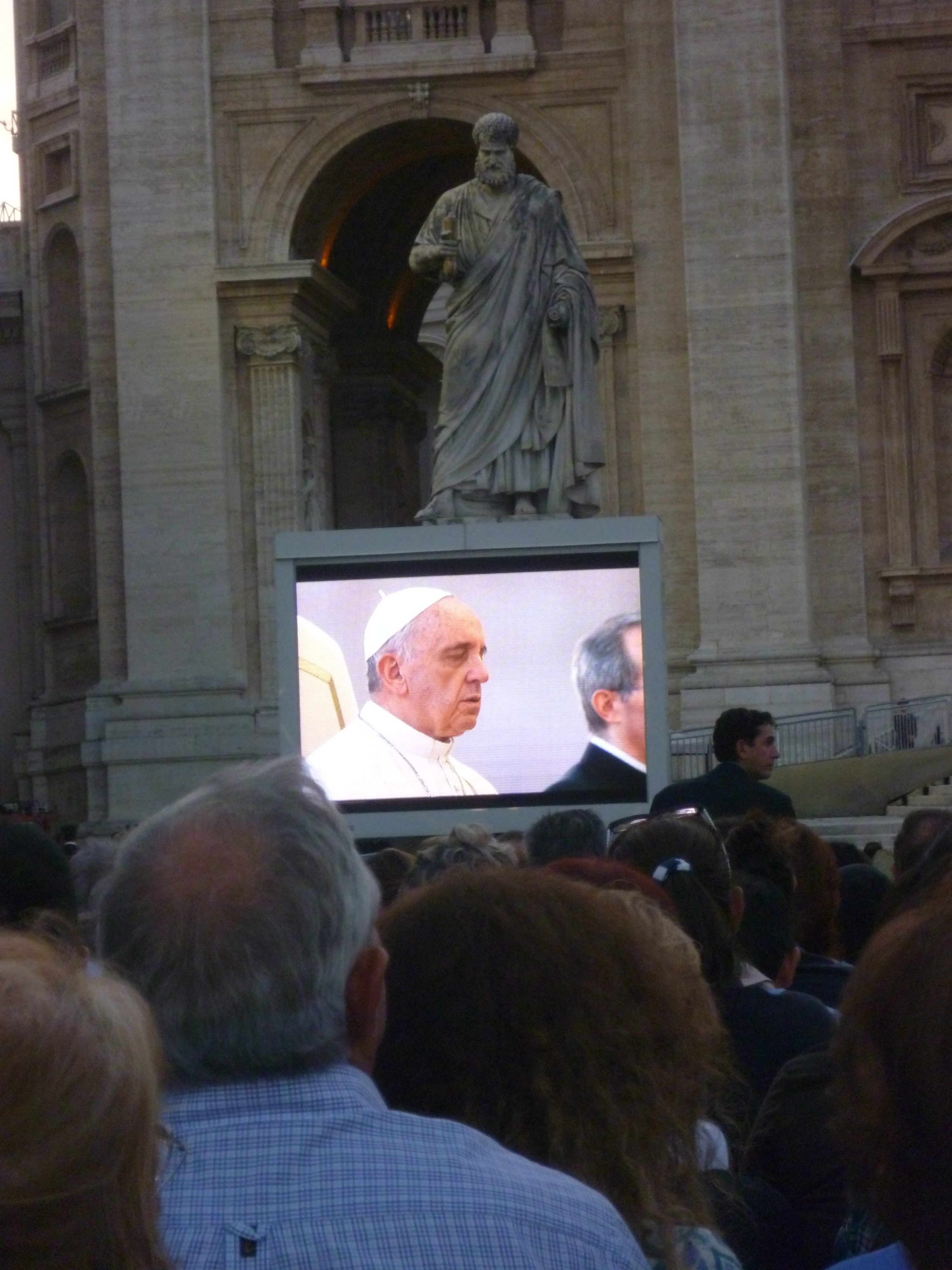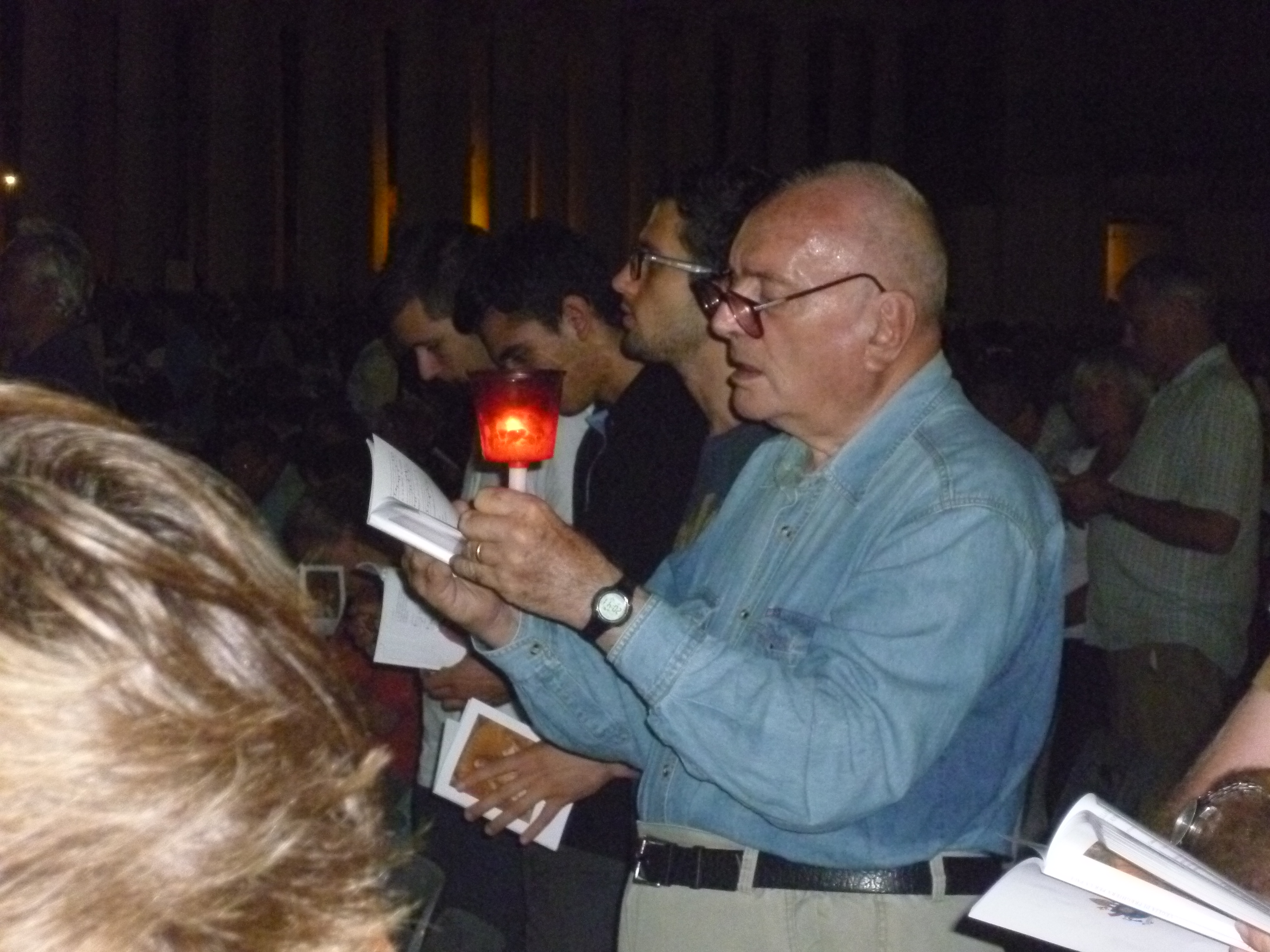
St. Peter’s Square during prayer for peace in Syria on 7th September, Credit photo: Daniel Alejandro Pinilla.
Syria vigil and fast
By Michelle Hough, communications officer with Caritas Internationalis
The first time I ever heard of Damascus was in the story of the conversion of Saint Paul. It’s a story that speaks of the possibility of change and forgiveness; where dark hearts are flooded with light and those who persecute can go on to do good.
I was in St Peter’s Square on Saturday night along with around 100,000 people, leaders of other faiths, prelates, Caritas colleagues (thanks to Alfonso for saving me a seat!), Italian politicians and of course Pope Francis to pray for such a change of heart regarding Syria.
As dusk descended over Saint Peter’s Square, Pope Francis said, “God’s world is a world where everyone feels responsible for the other, for the good of the other. This evening, in reflection, fasting and prayer, each of us deep down should ask ourselves: Is this really the world that I desire?”
Pope Francis was in a reflective mood. No tour of the piazza, no waving nor smiling. He came out and sat next to the altar in front of the basilica and followed a recital of the rosary and the joyful mysteries. He then gave a meditation, which was followed by the adoration of the Eucharist.
“In the silence of the Cross, the uproar of weapons ceases and the language of reconciliation, forgiveness, dialogue, and peace is spoken,” said Pope Francis during his meditation.
“This evening, I ask the Lord that we Christians, and our brothers and sisters of other religions, and every man and woman of good will, cry out forcefully: violence and war are never the way to peace!
Let everyone be moved to look into the depths of his or her conscience and listen to that word which says: Leave behind the self-interest that hardens your heart, overcome the indifference that makes your heart insensitive towards others, conquer your deadly reasoning, and open yourself to dialogue and reconciliation.”
It’s hard to digest the enormity of the horror of the conflict in Syria. The more news and images we get, the less we seem to want to know about it. The most read story on the BBC website this morning was actually a Syria story: “Assad says US has no chemical proof”, but then the most shared story was “’Baby-faced’ people live longer”.
Caritas tries to put names and faces to the suffering. It’s often small details which resonate with people. For example, I spoke to a colleague in Caritas Lebanon about the refugees pouring over the border from Syria last winter.
“They come to Lebanon with nothing. Some don’t even have shoes. They walk through the snow without shoes. Often, they’re women and children,” she told me.
I held this thought close to me on Saturday night. I also thought about our former Caritas Iraq colleague Khawla, who fled Iraq a few years ago because of violence against her family (they are Christian). She went and settled in Syria but then war broke out and she had to flee once more. She’s now in Canada with her family. She’s safe but she misses her homeland and struggles. How many Syrians will still be far from home years after this war is over?
I also thought about the image I’d seen of someone washing down the near lifeless body of a man following a suspected chemical attack, trying to clean away the poison. I wondered if that man would survive the war, even if he did manage to survive that attack.
Caritas secretary general, Michel Roy, was in St Peter’s for the vigil and fast. He said, “This is a clear and powerful initiative to mobilise spiritual leaders to find another way out. Politics has so far failed. Now we need a peaceful solution so there is no more violence and no more deaths.”
As we all sat in front of the magnificence of St Peter’s, reflecting on the mysteries of the rosary and listening to the choir and the lone harpist playing just inside the basilica, it seemed impossible that there was war anywhere. You could feel the power of tens of thousands of people in prayer. It was a feeling that defies words.
As the vigil ended, one pilgrim told me, “The vigil has given me a glimpse of communion and of sharing. We were all there praying and I could feel a sense of togetherness.
“On a more personal level, I kept asking myself throughout the vigil what all of this has got to do with my daily life at thousands of miles away from Syria. It’s got me to think that peace starts at home: deep down I know that I can’t call for peace elsewhere if I don’t live peacefully with those closest to me first.”


